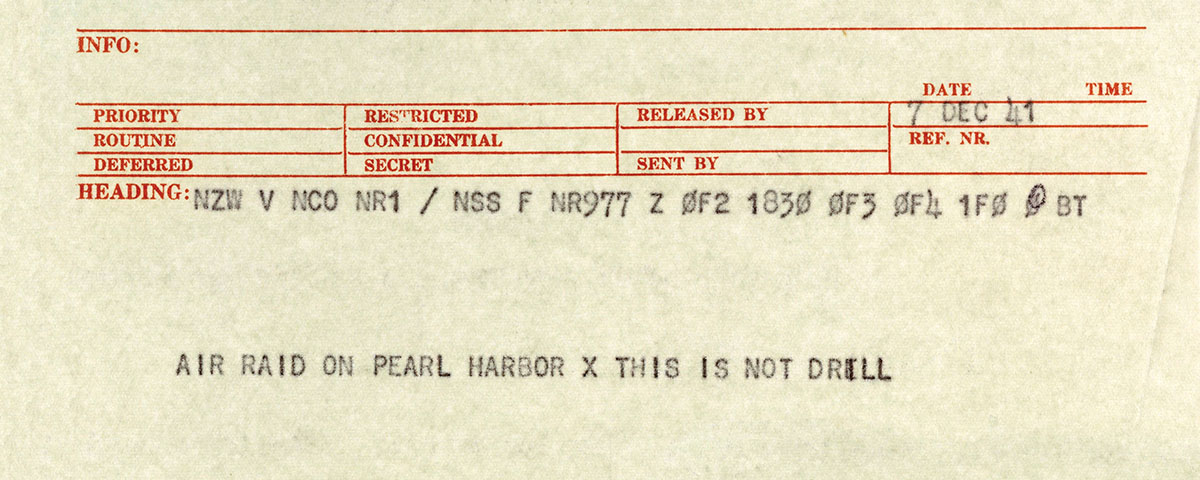Used for war communications for the first time in the Crimean War, telegraphy transformed the conduct of battle—and enlivened the historical record.
Yesterday God crowned our arms with success. The enemy is retreating.
Confederate major general Thomas J. “Stonewall” Jackson to his wife on June 9, 1862, after his Army of the Valley repulsed attacks by Union major general John C. Frémont and Union brigadier general James Shields in the Battle of Port Republic
Hold on with a bull-dog grip, and chew & choke, as much as possible.
President Abraham Lincoln to Union lieutenant general Ulysses S. Grant on August 17, 1864, after being informed that Grant was reluctant to break his hold on the Confederate army at Petersburg, Virginia
I beg to present to you as a Christmas gift the city of Savannah with 150 guns & plenty of ammunition & also about 25,000 bales of cotton.
Union major general William Tecumseh Sherman to President Lincoln on December 22, 1864, after completing his March to the Sea and capturing one of the last major ports that remained open to the Confederates
General Lee surrendered the Army of Northern Virginia this afternoon on terms proposed by myself. The accompanying additional correspondence will show the conditions fully.
Union lieutenant general Ulysses S. Grant to Secretary of War Edwin M. Stanton on April 9, 1865, after meeting with Confederate general Robert E. Lee at Appomattox Court House, Virginia
It is my painful job to tell you that something terrible has happened to General Custer and his soldiers….Almost nothing is known about what happened to Custer and his five companies because everyone with him died during the fighting.
Brigadier General Alfred H. Terry to his superiors in the U.S. Army on June 27, 1876, after discovering the bodies of George Armstrong Custer and his men following the Battle of the Little Bighorn in Montana Territory
Indians are dancing in the snow and are wild and crazy. I have fully informed you that [we] have no protection and are at the mercy of these dancers. Why delay by further investigation? We need protection, and we need it now.…Nothing short of 1000 troops
will stop this dancing.
Dr. Daniel F. Royer, the newly appointed agent of the Pine Ridge Reservation in South Dakota, to the commissioner of Indian Affairs in Washington, D.C., on November 15, 1890, asking for military support and ultimately triggering the massacre of hundreds of Lakota Indians near Wounded Knee Creek
Please remain. You furnish the pictures, and I’ll furnish the war.
Newspaper publisher William Randolph Hearst to Frederic Remington, his artist in Cuba, in 1897 after Remington, finding no Spanish atrocities there and no scenes worth illustrating, had cabled: “Everything is quiet. There is no trouble here. There will be no war. I wish to return.”
By appointing Hitler chancellor of the Reich you have handed over our sacred German fatherland to one of the great demagogues of all time. I prophesy to you this evil man will plunge our Reich into the abyss and will inflict immeasurable woe on our nation. Future generations will curse you in your grave for this action.
Former Prussian general Erich Ludendorff to German president Paul von Hindenburg, his former commander in chief, on January 30, 1933
Winston is back.
British naval command “to all ships” on September 1939, announcing the return of Winston Churchill to his old job as First Lord of the Admiralty
Further cowardly retreats are forbidden.
German chancellor Adolf Hitler to Field Marshal Paul Ludwig Ewald von Kleist on November 29, 1941, after von Kleist, having captured the Soviet city of Rostov, abandoned it a week later in the face of a counteroffensive launched by Soviet general Semyon Timoshenko
Air raid on Pearl Harbor. This is not drill.
Rear Admiral Husband E. Kimmel to “all ships present at the Hawaii[a]n area” on December 7, 1941, just minutes after Japanese fighter planes started dropping bombs on the U.S. naval base at Pearl Harbor
Mein Führer. The Sixth Army has kept faith. We have fought to the last man, last bullet, as you ordered. We have no more arms, no more ammunition. No more food. The following divisions have been totally wiped out: 14th, 16th, and 24th Panzer divisions; 9th flak division; 30th motorized division; 44th, 71st and 176th infantry divisions; 100th rifle division. Heil Hitler! Long live Germany!
German field marshal Friedrich Wilhelm Paulus to Adolf Hitler, February 1, 1943
Conditions appalling. City wiped out. Eighty percent of all hospitals destroyed or seriously damaged. Inspected two emergency hospitals, conditions beyond description. Effect of bomb mysteriously serious. Many victims apparently recovering suddenly suffer fatal relapse due to decomposition of white blood cells and other internal injuries, now dying in great numbers. Estimated still over one hundred thousand wounded in emergency hospitals.…
A representative of the International Committee of the Red Cross in Hiroshima, Japan, to Dr. Marcel Junod, ICRC delegate, on August 30, 1945, 24 days after the United States dropped the world’s first atomic bomb on the city
The unleashed power of the atom has changed everything save our modes of thinking and we thus drift toward unparalleled catastrophe.
Physicist and Nobel laureate Albert Einstein to several hundred prominent Americans on May 23, 1946, in a fundraising appeal for the newly formed Emergency Committee of Atomic Scientists
[hr]
This article appears in the Spring 2018 issue (Vol. 30, No. 3) of MHQ—The Quarterly Journal of Military History with the headline: War List | Wired Words

Want to have the lavishly illustrated, premium-quality print edition of MHQ delivered directly to you four times a year? Subscribe now at special savings!

